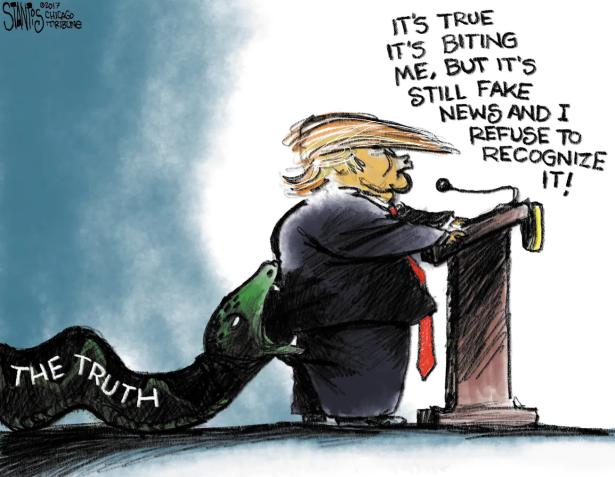- The End of Press Freedom?
- A Tidal Wave Started on Reddit
- Antitrust Agony
- News Coverage of Mass Opposition
- DeepSeek Goes Global
- Tech Oligarchs’ Prophetic Visions
- OpenAI Innovator Ordered Out of the Country
- Netflix CEO Says Theaters are Finished
- A Political Sitcom to Remember
- WFMU Forever
By Robert Kuttner
The American Prospect
One of the oddities of America’s slide into dictatorship is that it’s all playing out publicly and being reported on by a still-free press, often to Donald Trump’s embarrassment. As Trump tries to destroy one free institution after another, sooner or later he will come for the press. For the moment, his forays against the press have been petulant and feeble rather than systematic.
A Tidal Wave Started on Reddit
By Rachel Leingang
The Guardian
It started with a Reddit post. “50 PROTESTS – 50 STATES – 1 DAY,” the user who goes by Evolved Fungi wrote, kicking off a movement that has since drawn hundreds of thousands to the streets in protests against Donald Trump across the country.
By Mathew Ingram
Columbia Journalism Review
Google has been found to be guilty of anticompetitive conduct in both its search and online advertising operations. The government is expected to argue that Google should be forced to sell off significant chunks of its business. And those sales—if and when they actually come to pass—could change the way that online publishing works in some fundamental ways.
News Coverage of Mass Opposition
Media and Democracy Project
The same media institutions and newsroom leaders that fail to respond to a constitutional crisis and fail to stand up for American democracy in its existential battle against oligarchy and the fascist MAGA movement are insufficiently covering the pro-democracy movement. Combined, these two media failures enable the dismantling of American democracy.
By Mimi Zou
The Conversation
When small Chinese artificial intelligence (AI) company DeepSeek released a family of extremely efficient and highly competitive AI models last month, it rocked the global tech community. The release revealed China’s growing technological prowess. It also showcased a distinctly Chinese approach to AI advancement.
Tech Oligarchs’ Prophetic Visions
The oracles of Silicon Valley want to enforce the futures they once envisioned. First, they sold us an idea of the world. Now, they intend to implement it — reshaping laws, institutions, and cultural expectations until their private fantasies become reality.
OpenAI Innovator Ordered Out of the Country
By Kyle Wiggers
TechCrunch
Kai Chen, a Canadian AI researcher working at OpenAI who’s lived in the U.S. for 12 years, was denied a green card, according to Noam Brown, a leading research scientist at the company. Another OpenAI employee, Dylan Hunn, said in a post that Chen was “crucial” for GPT-4.5, one of OpenAI’s flagship AI models.
Netflix CEO Says Theaters are Finished
“Folks grew up thinking, I want to make movies on a gigantic screen and have strangers watch them [and to have them] play in the theater for two months and people cry and sold-out shows … It’s an outdated concept.”
A Political Sitcom to Remember
By Willie Carver
MSNBC
When the first run of Roseanne Barr’s eponymous working-class comedy premiered on ABC in 1988, it stood in stark contrast to the prime-time glamour of “Dallas” and “Dynasty,” which then dominated television. Instead of sparkling gowns and champagne-fueled catfights, plots on “Roseanne” involved unpaid electric bills, broken washing machines and kitchen-table spats.
By John Erik Hmiel
Jacobin
For the DJs of WFMU, free-form radio is not simply a means to play music without boundaries. It is a vital alternative to corporate streaming platforms like Spotify, which treat music as nothing other than monetizable data.


Spread the word